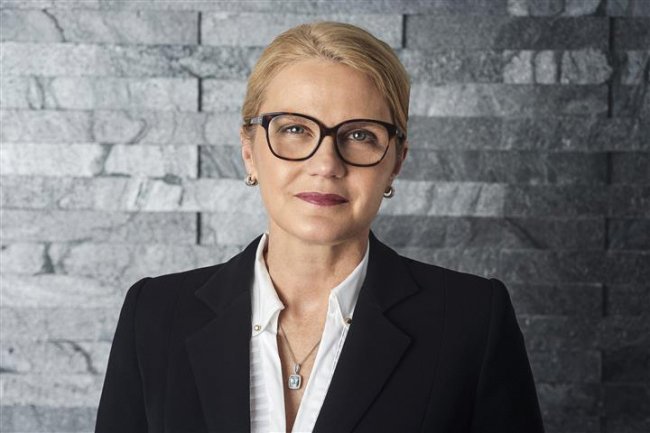Respiratory physician Lutz Beckert considers chronic obstructive pulmonary disease management, including the prevention of COPD, the importance of smoking cessation and pulmonary rehabilitation, and the lifesaving potential of addressing treatable traits. He also discusses the logic of inhaler therapy, moving from single therapy to dual and triple therapy when indicated, as well as other aspects of management
Liability stands, says top court: The problem with holding others accountable for one person’s error
Liability stands, says top court: The problem with holding others accountable for one person’s error

Kia ora, please enjoy our Summer Hiatus selection of stories and comment from throughout 2023, curated by our editorial team. This article was first published on 10 May. We will be back from our summer break on 15 January. Happy reading
Chosen by Barbara: The long-running case on vicarious liability in practices went as far as the Supreme Court. Ultimately, it means GPs must take note of what is happening clinically elsewhere in their practice building. Martin Johnston summed up the findings and possible impact
A case has shown that healthcare providers are liable for the mistakes of their contractors or partners. Is it a nonsense that disadvantages general practices or a business reality? Martin Johnson reports
GPs will be discouraged from buying into practices now that the Supreme Court has held a medical centre liable for a prescription error by one of its partners, says a GP leader.
But other top GPs say the decision is reasonable and a reminder of the need for good clinical governance in a general practice ownership landscape that has changed significantly.
The court issued its ruling on 28 April on the long-running “vicarious liability” case arising from a prescription error by specialist GP Peter Sparks at Moore Street Medical Centre in Ashburton.
Dr Sparks and specialist GP Christopher Ryan – both now retired – were effectively each half owners of the partnership that traded as the medical centre, even though they didn’t have a written partnership agreement.
A deputy health and disability commissioner found Dr Sparks breached the Code of Health and Disability Services Consumers’ Rights. In 2016 he had prescribed ciprofloxacin to a patient of Dr Ryan’s despite her having a documented allergy to that class of antibiotics. She was seen by Dr Sparks because Dr Ryan was on leave.
The Health and Disability Commissioner decision was that the centre did not directly breach the code because it had policies consistent with expected standards, but was still liable for Dr Sparks’ breach as he was an “agent” of the centre under the vicarious liability section of the Health and Disability Commissioner Act 1994.
It marks the end of the concept of doctors working individually, being responsible only for themselves in a shared premises situation
Dr Ryan sought a judicial review, writing in an affidavit: “The prospect that I am held responsible and accountable for the actions of another, where I was not involved in the consultation, had no influence over what occurred, and no ability to influence such an occurrence in the future, does not sit well with me to say the least.”
He said his professional reputation and practice would be damaged if the liability finding against the medical centre was upheld.
His case failed, however, at the High Court and on appeal first to the Court of Appeal and now, following a hearing in March last year, to the Supreme Court.
The Court of Appeal noted in its decision that Dr Sparks and, despite not personally being at fault, Dr Ryan, together trading as the medical centre, were potentially at risk of being sued, because of the vicarious liability finding, in the Human Rights Review Tribunal.
The HDC Act says an aggrieved person may bring proceedings to the tribunal if the commissioner, having found a breach, has not referred the matter to the director of proceedings, or the director declines or fails to take proceedings.
The Ministry of Justice website says the tribunal can award compensatory damages of up to $350,000.
The Supreme Court majority (chief justice Dame Helen Winkelmann and three more of the hearing’s five judges) found the centre was liable under Section 72 (3) of the HDC Act, which says that anything done or omitted by an agent of an employing authority (healthcare provider) is considered to be done or omitted by the authority as well as by the agent – unless it was without the authority’s approval.
They argue Dr Sparks was undertaking an act within the functions he was required to perform (prescribing) and was therefore acting with the medical centre’s authority.
Justice Sir William Young, however, wrote that although he had no difficulty with the majority’s result, he differed over the application of the act’s “unless” proviso, and urged Parliament to reconsider Section 72.
The interpretation advanced for Dr Ryan was that the effect of the proviso is that the centre is not liable unless it authorised Dr Sparks to prescribe ciprofloxacin despite the patient’s known allergy.
All five judges found the medical centre was a partnership.
The two GPs operated separate practices at the medical centre, which was at premises owned by a company of which they were the directors. They had separate patient registers and separate bank accounts and had different accountants.
But many aspects of the medical centre were joint activities. It employed nurses, administrative staff and locum doctors, and owned equipment and the practice management system.
The booking system and patient records were shared, the centre had practice-wide policies that applied to the two GPs and other health practitioners, and had a bank account into which Drs Ryan and Sparks paid an agreed weekly sum.
“The medical centre business was presented to the public as a single, integrated medical services provider”, the Supreme Court decision says.
General Practice Owners Association chair Tim Malloy says he can speak only in his personal capacity as a specialist GP as GenPro hadn’t yet met to consider the court verdict. “I think it’s a nonsense,” Dr Malloy says.
He says it’s ridiculous a medical centre can do everything right, yet still be held liable for an individual’s straightforward error.
“If this is the literal translation of the law, the law is wrong.”
The risk it creates for practices will increase costs, which will have to be paid by the Government or patients, he says, adding that the judgement will be a disincentive for GPs to become practice owners. He argues the law needs to be changed.
RNZCGP president Samantha Murton and former NZMA chair Kate Baddock, both specialist GPs, take a different view. They believe the judgement is in line with how general practice has been changing.
This is a turnaround for Dr Baddock, who gave evidence in the case for the NZMA which, because of the case’s importance to the medical profession, was an intervener.
She said then in an affidavit that general practices were generally associateships, partnerships and companies. Associateships were most common, with sole-trader doctors co-located in a building and sharing costs such as premises, electricity, staffing and IT.
“The doctors operated their own practices, responsible clinically only to themselves, their patients and the Medical Council,” Dr Baddock said at the time.
Doctors were not the agents of their practice, Dr Baddock said, foreseeing future harm for the future of general practice and the community if the HDC decision stood.
Now the litigation is ended, however, she says: “I think we need to accept it and move on.
“It marks the end of the concept of doctors working individually, being responsible only for themselves in a shared premises situation.”
In the seven years since the error that began the HDC case, Dr Baddock now says, general practice has moved away from the sole-trader associateships she described to the court and towards group practices characterised by more binding relationships within a practice and the establishment of standard, practice-wide policies and governance groups.
Dr Murton agrees practice ownership models have been changing. She says the finding of vicarious liability, although initially a surprise, is a reminder medical businesses need to provide for health and safety, and robust clinical governance.
“There’s an expectation from patients that if you are walking into a building then that is a sole entity.
“I know one example where they work in four different [practice] pods but there should still be clinical governance over that whole practice so that, if any person walks in the door and goes to any one of those pods, they know that there is a standard of care that’s being delivered and that those people are working within the policies and rules of that whole business.”
To address the risk posed by vicarious liability, in the wake of the 2021 Court of Appeal decision, the Medical Protection Society introduced a new type of cover called New Zealand Practice Cover. The MPS team leader for Australia and New Zealand, Zarko Kamenica, says in an interview about 50 practices have taken that cover.
In a statement, Dr Kamenica says the Supreme Court decision means all healthcare providers are potentially liable for the acts or omissions of their agents, whether or not they could have done anything to prevent the act or omission. The agent could be a contractor or partner, but not an employee.
The HDC Act provides a defence to an employer if it can establish it took reasonably practicable steps to prevent the offending acts or omissions of an employee in a breach of the Code of Rights. This defence isn’t available regarding partners or contractors.
Dr Kamenica emphasises the court’s decision is only relevant to the HDC role in resolving complaints; it has no wider application to providers’ liability.
“This [decision] does not mean that the statutory bar on initiating civil proceedings for damages against health providers has been bypassed nor that the partners at the provider are liable to disciplinary proceedings in the Health Practitioners Disciplinary Tribunal. However, when the HDC has found the provider vicariously liable, this leaves an option to patients to initiate proceedings for compensation against the provider in the Human Rights Review Tribunal.”
Wellington lawyer Gaeline Phipps says by email the decision, coming in an acute health worker shortage, is another unfortunate disincentive for GPs to engage in collective general practice, potentially to the detriment of patients. Ms Phipps notes the judgement says it is for Parliament to change the legislation if concerned about the decision’s consequences.
“An interim step could be a clear policy statement from the Health and Disability Commissioner.”








![Barbara Fountain, editor of New Zealand Doctor Rata Aotearoa, and Paul Hutchison, GP and senior medical clinician at Tāmaki Health [Image: Simon Maude]](/sites/default/files/styles/thumbnail_cropped_100/public/2025-03/Barbara%20Fountain%2C%20editor%20of%20New%20Zealand%20Doctor%20Rata%20Aotearoa%2C%20and%20Paul%20Hutchison%2C%20GP%20and%20senior%20medical%20clinician%20at%20T%C4%81maki%20Health%20CR%20Simon%20Maude.jpg?itok=-HbQ1EYA)
![Lori Peters, NP and advanced health improvement practitioner at Mahitahi Hauora, and Jasper Nacilla, NP at The Terrace Medical Centre in Wellington [Image: Simon Maude]](/sites/default/files/styles/thumbnail_cropped_100/public/2025-03/2.%20Lori%20Peters%2C%20NP%20and%20advanced%20HIP%20at%20Mahitahi%20Hauora%2C%20and%20Jasper%20Nacilla%2C%20NP%20at%20The%20Terrace%20Medical%20Centre%20in%20Wellington%20CR%20Simon%20Maude.jpg?itok=sUfbsSF1)
![Ministry of Social Development health and disability coordinator Liz Williams, regional health advisors Mary Mojel and Larah Takarangi, and health and disability coordinators Rebecca Staunton and Myint Than Htut [Image: Simon Maude]](/sites/default/files/styles/thumbnail_cropped_100/public/2025-03/3.%20Ministry%20of%20Social%20Development%27s%20Liz%20Williams%2C%20Mary%20Mojel%2C%20Larah%20Takarangi%2C%20Rebecca%20Staunton%20and%20Myint%20Than%20Htut%20CR%20Simon%20Maude.jpg?itok=9ceOujzC)
![Locum GP Helen Fisher, with Te Kuiti Medical Centre NP Bridget Woodney [Image: Simon Maude]](/sites/default/files/styles/thumbnail_cropped_100/public/2025-03/4.%20Locum%20GP%20Helen%20Fisher%2C%20with%20Te%20Kuiti%20Medical%20Centre%20NP%20Bridget%20Woodney%20CR%20Simon%20Maude.jpg?itok=TJeODetm)
![Ruby Faulkner, GPEP2, with David Small, GPEP3 from The Doctors Greenmeadows in Napier [Image: Simon Maude]](/sites/default/files/styles/thumbnail_cropped_100/public/2025-03/5.%20Ruby%20Faulkner%2C%20GPEP2%2C%20with%20David%20Small%2C%20GPEP3%20from%20The%20Doctors%20Greenmeadows%20in%20Napier%20CR%20Simon%20Maude.jpg?itok=B0u4wsIs)
![Rochelle Langton and Libby Thomas, marketing advisors at the Medical Protection Society [Image: Simon Maude]](/sites/default/files/styles/thumbnail_cropped_100/public/2025-03/6.%20Rochelle%20Langton%20and%20Libby%20Thomas%2C%20marketing%20advisors%20at%20the%20Medical%20Protection%20Society%20CR%20Simon%20Maude.jpg?itok=r52_Cf74)
![Specialist GP Lucy Gibberd, medical advisor at MPS, and Zara Bolam, urgent-care specialist at The Nest Health Centre in Inglewood [Image: Simon Maude]](/sites/default/files/styles/thumbnail_cropped_100/public/2025-03/7.%20Specialist%20GP%20Lucy%20Gibberd%2C%20medical%20advisor%20at%20MPS%2C%20and%20Zara%20Bolam%2C%20urgent-care%20specialist%20at%20The%20Nest%20Health%20Centre%20in%20Inglewood%20CR%20Simon%20Maude.jpg?itok=z8eVoBU3)
![Olivia Blackmore and Trudee Sharp, NPs at Gore Health Centre, and Gaylene Hastie, NP at Queenstown Medical Centre [Image: Simon Maude]](/sites/default/files/styles/thumbnail_cropped_100/public/2025-03/8.%20Olivia%20Blackmore%20and%20Trudee%20Sharp%2C%20NPs%20at%20Gore%20Health%20Centre%2C%20and%20Gaylene%20Hastie%2C%20NP%20at%20Queenstown%20Medical%20Centre%20CR%20Simon%20Maude.jpg?itok=Z6u9d0XH)
![Mary Toloa, specialist GP at Porirua and Union Community Health Service in Wellington, Mara Coler, clinical pharmacist at Tū Ora Compass Health, and Bhavna Mistry, specialist GP at Porirua and Union Community Health Service [Image: Simon Maude]](/sites/default/files/styles/thumbnail_cropped_100/public/2025-03/9.%20Mary%20Toloa%2C%20Porirua%20and%20Union%20Community%20Health%20Service%20in%20Wellington%2C%20Mara%20Coler%2C%20T%C5%AB%20Ora%20Compass%20Health%2C%20and%20Bhavna%20Mistry%2C%20PUCHS%20CR%20Simon%20Maude.jpg?itok=kpChr0cc)